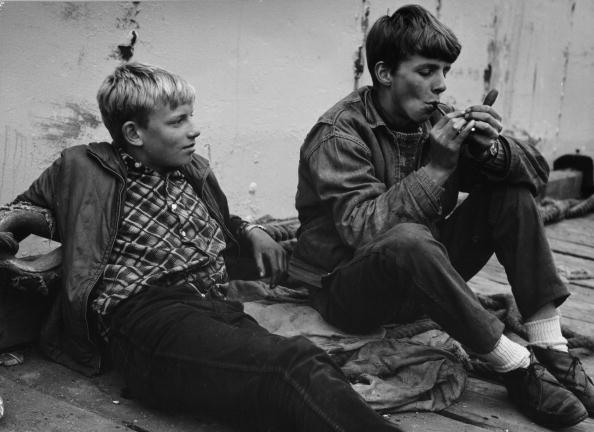Sex, drugs, and voting booths – when is the true ‘age of adulthood’?

When does adulthood begin?
Is it your first alcoholic drink, your first sexual experience, the first time you gamble, or get paid, or vote?
In the UK, you can have an alcoholic drink from the age of five at home, 16 if you’re eating in a restaurant, or 18 if you’re buying your own. You can have sex at 16, when you can also buy a lottery ticket, join the army or get married (both with parental consent) – but if you want to bet on the football, that’ll be 18.
Your first official pay cheque might be 16, but young people now have to stay in some form of education or training until they are 18.
And the voting age is 18 in England and Wales, but 16-year-olds can head to the ballot box in Scotland for local and Scottish parliament polls, although not in a General Election.
With an election looming and the prospect of another referendum at least theoretically back on the cards, the cry is going up once more to extend nationwide voting rights to everyone from the age of 16.
Proponents point to the variations in when we allow young people to do important things – if you can win big on the Lotto, serve your country, or start your own family, why not vote? And they have a point, in that these inconsistencies make little sense. But loopholes are everywhere in our system.
Indeed, one of the key arguments in favour of lowering the voting age to 16 is that people at that age can be paying income tax from their jobs. No taxation without representation, as our American friends would say. But income tax isn’t the only tax – a six-year-old buying sweets with their pocket money pays VAT and the sugar tax, but that doesn’t mean they should be toddling off to the ballot box.
However, for the sake of clarity, is there an argument for introducing a single age of adulthood?
Legally in the UK, this transition happens in dribs and drabs. It might make more sense to iron out the legal kinks and just choose an age.
What that age should be is another matter. Culturally, Brits probably lean towards 18, especially for voting. Raising the age of consent would be a political struggle, but having the debate would at least force us to properly consider how we’re measuring maturity, and why.
There are plenty of examples of legal ages changing. The first 18-year-olds voted in 1970, following a campaign by university students to drop the limit from 21. The age of consent has been 16 for over a century, unless you were a man having sex with another man, in which case it has been 21 (since 1967), 18 (since 1994), and 16 (since 2000). The smoking age rose from 16 to 18 in 2007.
Each change shows that our perception of adulthood is fluid, but if we are changing the age at which we think people are able to make adult decisions, we should at least make it consistent.
A person’s transition to adulthood happens to small steps and all at once, creeping up on you slowly until you turn around one day and realise that yes, you are the responsible grown-up in the room. But the state should probably reflect on why it treats some individuals as adults in a bedroom or betting shop, but children in pub or voting booth.
Becoming an adult doesn’t happen overnight, but as far as the law is concerned, maybe it should.
Main image credit: Getty
